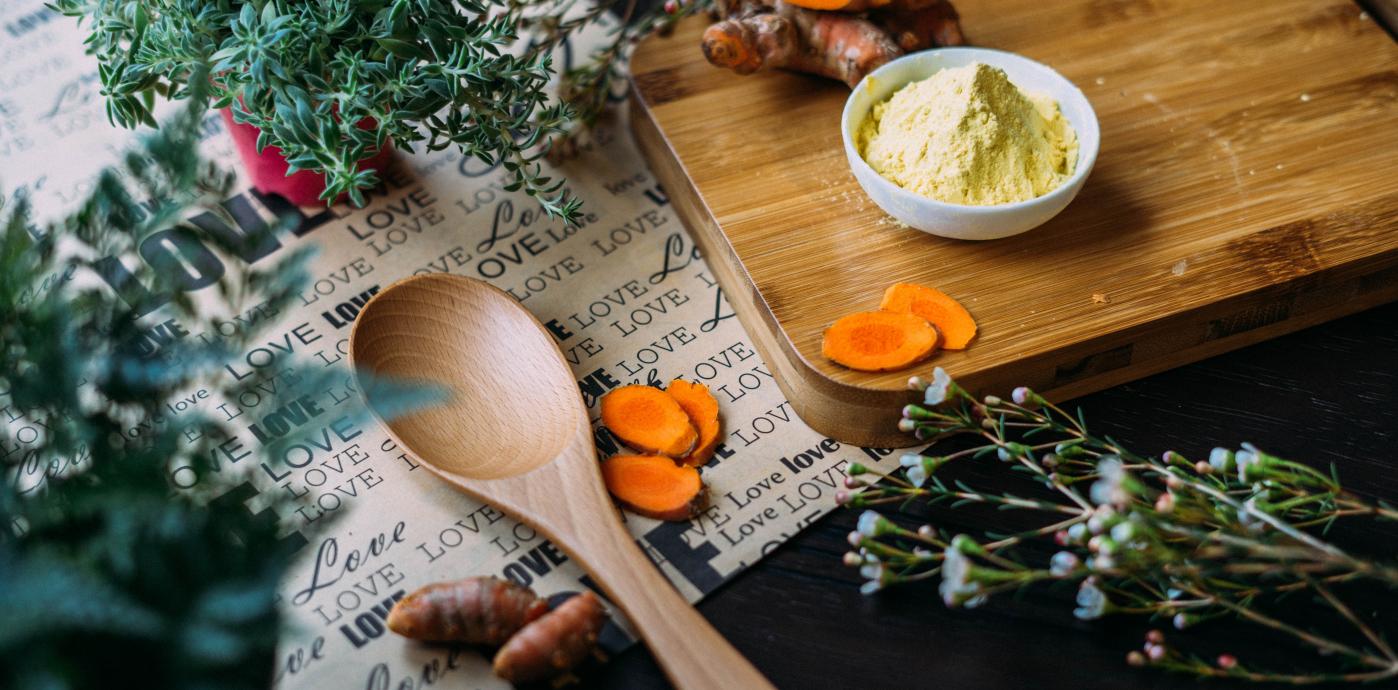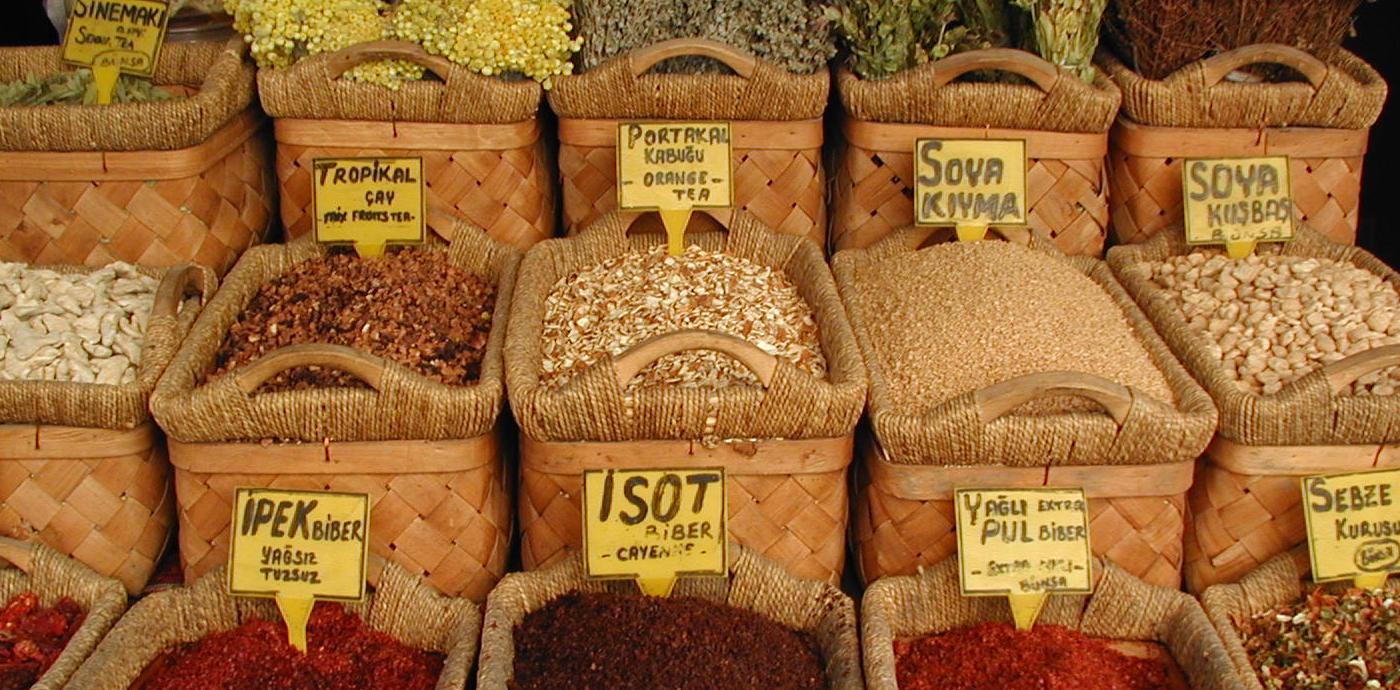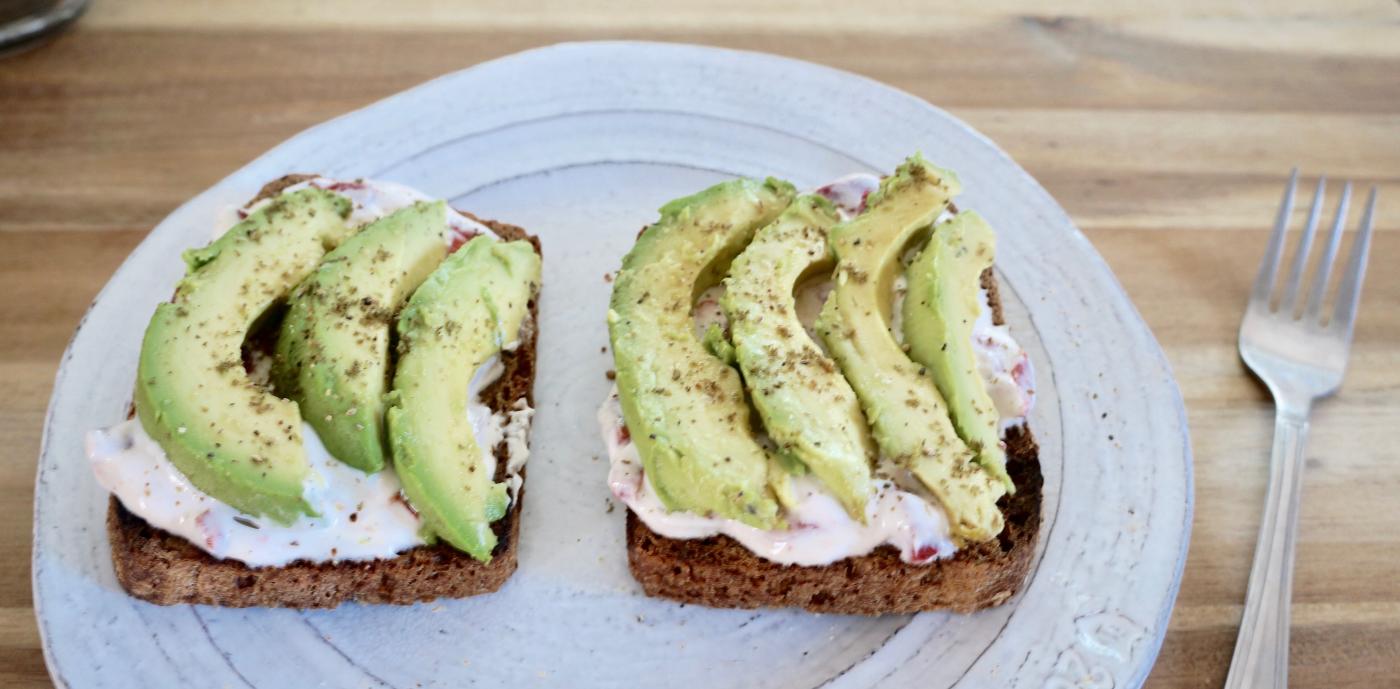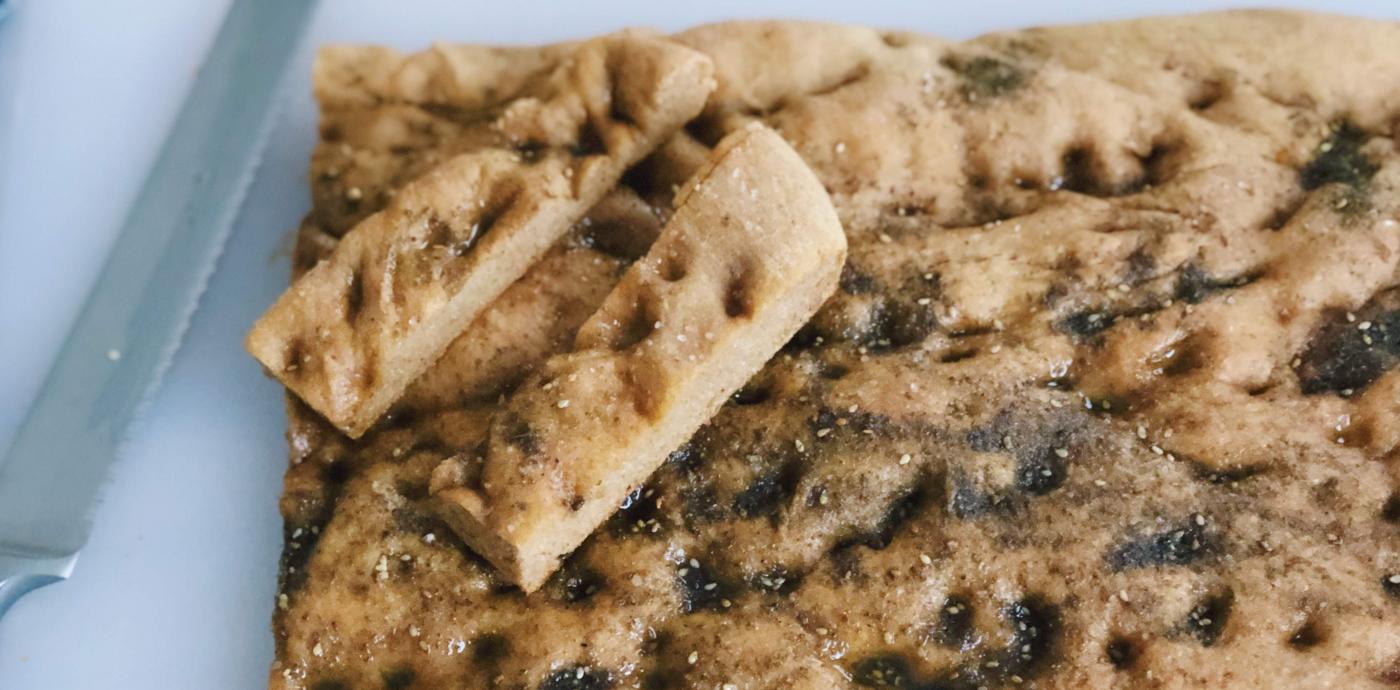Share This
You probably didn’t think twice before reaching for the pepper mill in preparing last night’s dinner. Yet, the contents of that pepper mill, what you hold in your hands, is the culmination of a long and complicated history – of lands discovered, wars waged, deception, flavor, and mystery. Spices such as cinnamon, cardamom, clove, ginger, nutmeg, and turmeric were central in the creation of vast empires. In the Old World, spices created great wealth for those who controlled them. The Spice Routes (aka Maritime Silk Roads) were a network of sea routes linking the East to the West, from the west coast of Japan, through the islands of Indonesia, around India to the Middle East, and from there, across the Mediterranean to Europe.
Thanks to those long-forgotten, intrepid sailors and entrepreneurial traders, nowadays spices are readily accessible. This is a good thing of course, as spices intensify the flavor and aroma of food. Today, different spices are being studied for their role in fighting inflammation, reducing pain, improving blood sugar control, and helping support memory and cognitive function. Spices also allow you to be creative and adventurous with your cooking. No more boring weeknight meals. You just need to add a bit of spice to your life.
Technically, herbs are the leaves of the plant, while spices come from the roots, bark, and seeds. When it comes to seasoning food, herbs and spices often go hand-in-hand.
Purchasing whole seeds and grinding them as-needed is the best way to retain freshness and extend shelf-life. You can enhance the flavor of spices by toasting whole seeds in a hot, dry skillet, shaking the pan to prevent scorching, then grinding the toasted seeds with a spice grinder, or by hand with a mortar and pestle.
Common spices and herbs used in the Mediterranean include basil, bay leaf, black pepper, cloves, coriander, cumin, dill, fennel, garlic, lavender, marjoram, mint, oregano, parsley, paprika, rosemary, saffron, sage, savory, sumac, tarragon, thyme, and turmeric.
When Oldways updated the Mediterranean Diet Pyramid in 2008, the group of scientists who met made the recommendation (among others) that herbs and spices be added to it. Their reasoning? First, herbs and spices give regional expression to Mediterranean cooking. In other words, herbs and spices can make a dish Greek or Turkish or Italian, depending upon the herbs and spices used. Furthermore, using herbs and spices can also reduce the need for a lot of added salt.
Sometimes spices are used alone, though when used in combination spices have the ability to create complex flavor profiles. Let’s explore some of the more common spice blends used in Mediterranean cooking:
Advieh is a Persian mix of dried rose petals and spices, including cinnamon, cardamom, cloves, nutmeg, and cumin, and is often added to rice dishes and stews.
Baharat means ‘spices’ in Arabic and is a typical blend utilized in Eastern Mediterranean cooking. There are variations depending on the region, but expect to find black pepper, coriander, cumin, cinnamon, cloves, cardamom, and paprika. Baharat is a warming spice that lends a pleasing savory, slightly sweet and subtle heat to rice pilafs and couscous, soups and stews, or as a dry rub for meat and vegetables. Lebanese seven-spice is a type of baharat.
Herbes de Provence is a fragrant French Provencal blend that may include dried savory, thyme, basil, marjoram, parsley, oregano, tarragon, rosemary, and fennel. Herbes de Provence makes a nice dry rub for grilled chicken, pork, or fish, and can infuse flavor into any number of stews, vegetables, or meat-based dishes.
Italian Herb Seasoning is a blend of dried Italian herbs such as basil, marjoram, oregano, rosemary, and thyme that will add a punch of flavor to pasta sauces, marinades, dressings, soups, and sauces.
Quatre épices is a French blend of four spices, typically ground black and/or white pepper, cloves, nutmeg, and ginger. In French cuisine, it’s typically used to season anything from soups and stews, grilled chicken, and vegetables, and is added to charcuterie such as pâtés, sausage, and terrines.
Ras el Hanout translates to “head of the shop” in Arabic or ‘top shelf’, referring to the best spices a store has to offer. The blends vary from region to region, from town to town, and even from family to family. Sometimes, ras el hanout is comprised of as many as 50 to 100+ individual spices. In Morocco, it’s used in everything and anything – dry rubs for grilled meats, fish, spreads, and soups and stews, namely tagines.
Vadouvan French Masala Curry is a French-ified Indian curry spice blend, or masala (South Asian term for spice blend). The French influence comes from the addition of shallots and garlic. This spice blend evolved due to French colonial influences in Southern India.
Za’ atar Spice is a mixture of sesame seeds, sumac, and herbs (often dried thyme and/or oregano). This combination is traditionally mixed with olive oil and spread on flatbread and baked in the oven. Za’ atar is also a flavorful seasoning for roasted meats or vegetables, salads, and any number of dips from hummus to yogurt, or even sprinkled over popcorn.
Are you looking for more information? Try the recipes below or take a look at Chef Ana Sortun’s book, Spice – a great source of information and recipes.
Want biweekly Med Diet information and recipes in your Inbox? Sign up for our Fresh Fridays newsletter by clicking the Subscribe button at the bottom of this page!
Join the Make Every Day Mediterranean Club Facebook group for additional information and support.
Top photo by Chin Le Duc on Unsplash.





Comments
Add a Comment